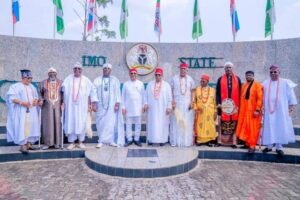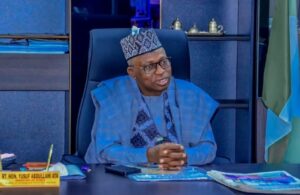Former Central Bank Governor and ex-Emir of Kano, Muhammadu Sanusi II, has sparked controversy over his recent criticism of President Bola Tinubu’s economic policies. During the 21st Chief Gani Fawehinmi Memorial Lecture in Lagos, Sanusi voiced his concerns, stating that the government is not managing the economy properly. He also claimed that Tinubu’s administration lacks credible individuals to communicate its policies to Nigerians effectively.
The Federal Government dismissed Sanusi’s remarks, asserting that Tinubu’s administration does not need his endorsement for its policies. In addition, the Northern Patriotic Coalition for Democracy (NPCD) criticized Sanusi, calling his comments careless and lacking substance.
“Is everything being done correctly? No. When I’m ready to discuss the economy, I will. I can provide insights into the challenges we face, how they were predictable, and even avoidable. But I won’t.
“I’ve chosen not to comment on the economy, reforms, or anything that could benefit this government. They are my friends, but if they don’t act like friends, I won’t act like one either,” Sanusi had said.
Speaking at a press briefing in Abuja, NPCD convener Mohammed Yahaya accused Sanusi of contributing to Nigeria’s economic challenges during his time as Central Bank Governor. Yahaya described Sanusi’s policies during his tenure as controversial and unhelpful.
NPCD defended Tinubu’s economic reforms, such as the removal of fuel subsidies and the unification of exchange rates. The group highlighted that these policies have received support from global institutions like the World Bank and the International Monetary Fund (IMF).
“President Tinubu has taken bold steps to correct decades of economic mismanagement. The removal of the fuel subsidy, while initially challenging, was a necessary move to free up resources for critical infrastructure and social investments which has further helped mitigate its impact on the vulnerable populations
“The unification of the exchange rate has also been widely praised by global financial institutions, including the World Bank and IMF, as a step toward long-term economic stability.
“Secondly, it is worth noting that these reforms have received widespread support from global economic experts. The World Bank has projected positive growth for Nigeria’s economy in the coming years, affirming that we are on a path to recovery.
“Evidently, the Tinubu administration is steering Nigeria in the right direction, despite the temporary pains of adjustment. It is no news that President Tinubu’s administration has demonstrated its openness to dialogue with stakeholders with meaningful contributions across various sectors.
“This government has prioritized transparency and inclusivity, ensuring that the voices of ordinary Nigerians are heard in shaping policies that directly affect their lives. Additionally, efforts are underway to communicate these policies effectively in local languages, ensuring that all Nigerians understand the benefits of these reforms.
“Rather than acknowledging these efforts or contributing positive ideas to enhance their effectiveness, Sanusi opted for a cynical and self-serving narrative. In contrast, what has Sanusi offered? Criticisms that are devoid of actionable solutions and reflect a parrot-like analysis of Nigeria’s economic situation.“He speaks of problems but offers no roadmap for resolution. This pattern of empty rhetoric is unhelpful and unbecoming of someone who claims to be a patriot. We believe that such inconsistency raises serious questions about the integrity of his arguments.
“Does Sanusi have a personal grudge against the policies, or is his criticism motivated by anything else? His recent comments give a clear picture of being more about settling personal scores and furthering partisan goals than they are about the actual content of economic reforms.”
The NPCD encouraged Sanusi to engage constructively with the government instead of making divisive statements. They also urged Nigerians to reject rhetoric that could hinder the country’s progress, emphasizing the need for unity in addressing economic challenges.
Tinubu’s administration remains committed to its economic strategies, despite mixed reactions from various quarters. The government continues to advocate for its policies as steps toward long-term stability and growth.







